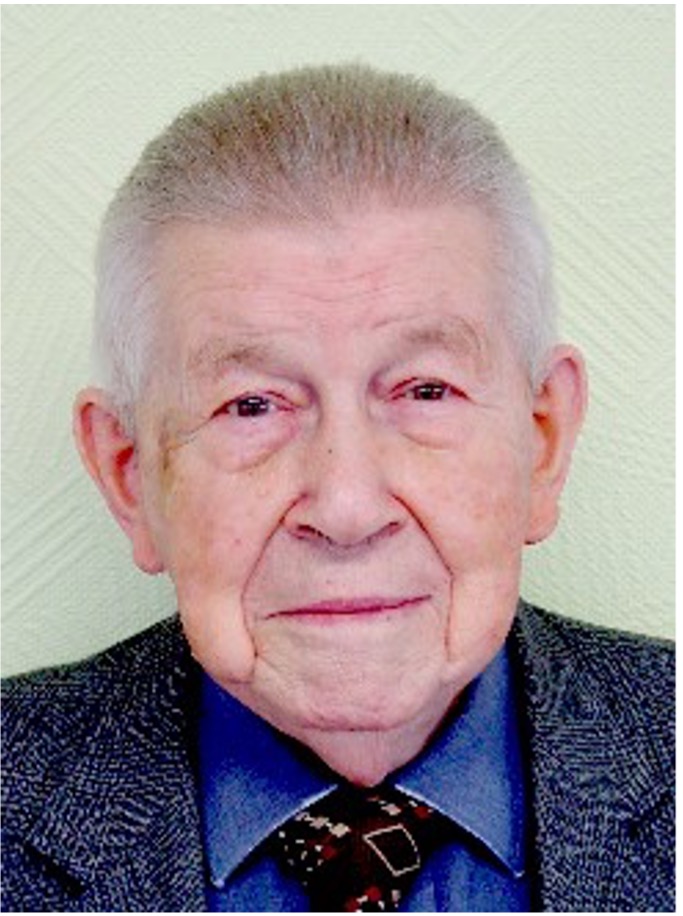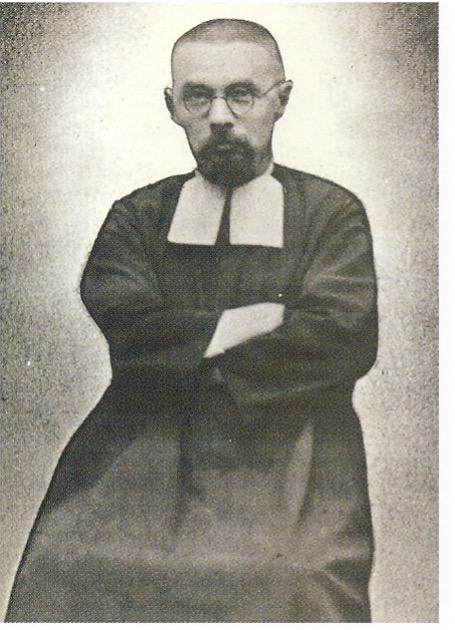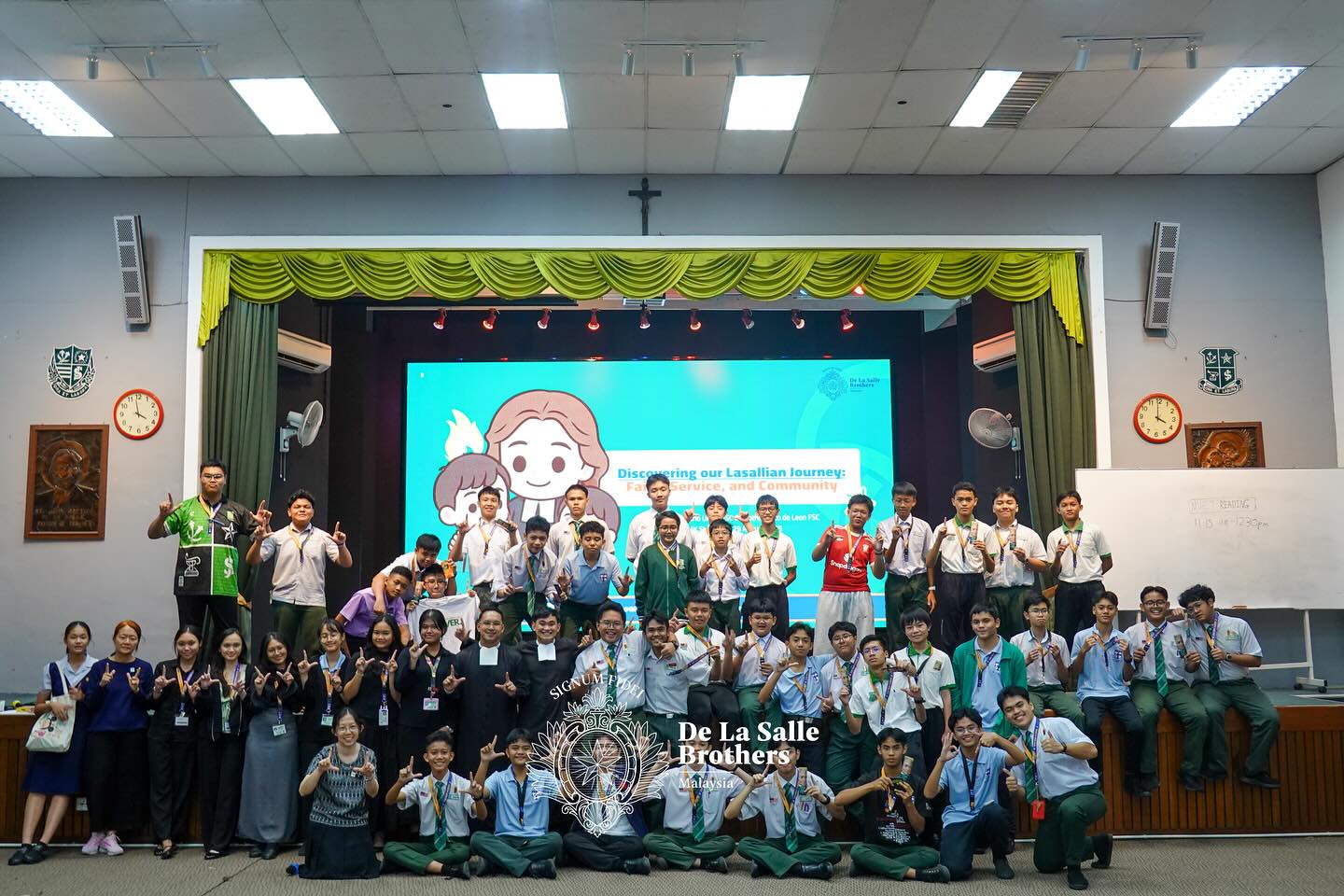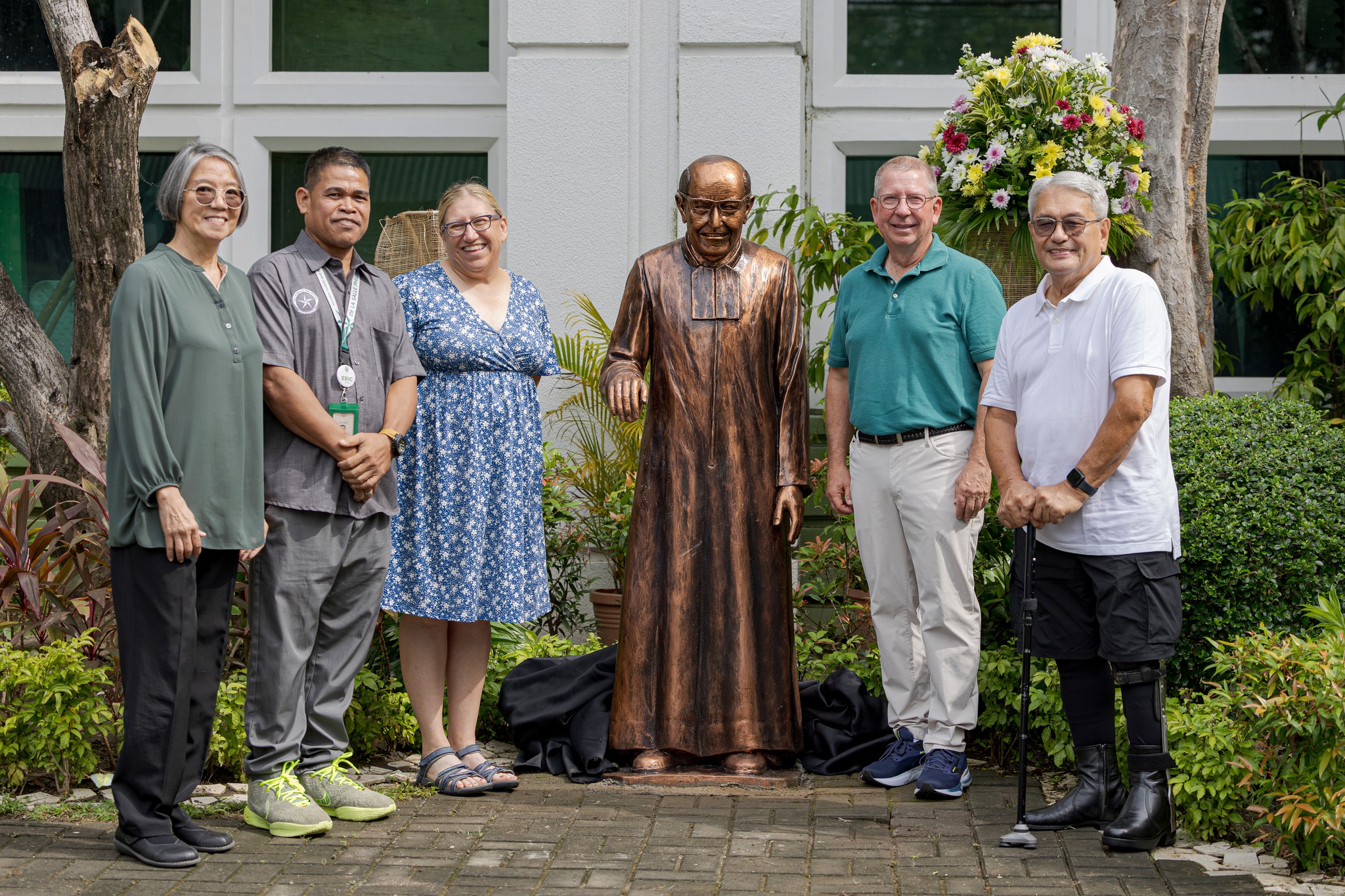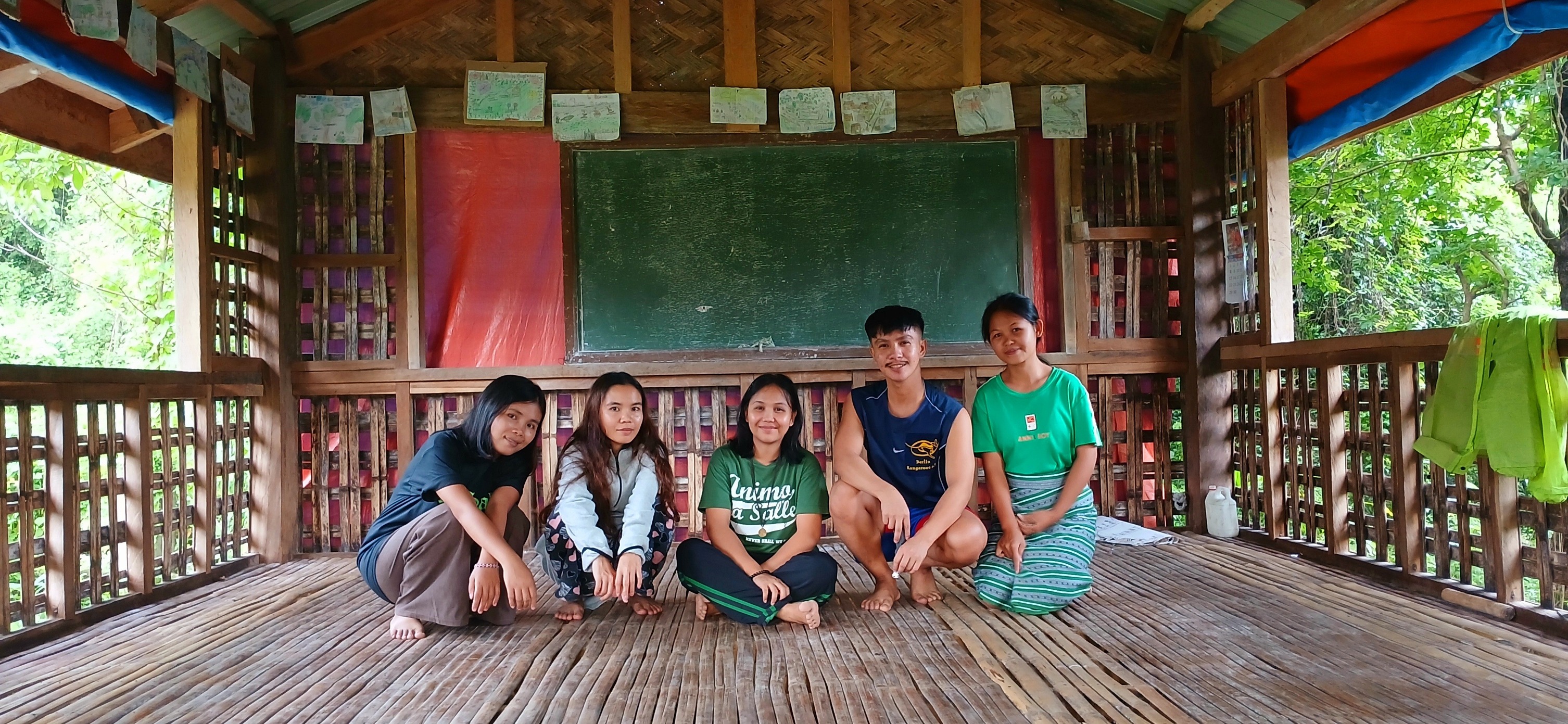Originally published in The Gateway Issue No. 36 (January 2012)
“God, I speak to you tonight with a quiet and calm confidence.
Your Son has taught me that you are my Father, you should not be called by a different name ... you are the Father!
Father, make me what you want: here I am to do your will.
O Father, I have no strength, but I have yours.
I shall never insult you by being afraid or thinking that you forget about me.
And if I find the cross very heavy and cannot see the way any more, I can at least keep repeating that I believe in your love and accept your will.
Lord, here is my life; do with it what you want.
Your will is that I become more and more like you! I want to walk the same path as the one who first told me your name.”
(Father Lyonnet).
This prayer of Father Lyonnet, found in Brother Bernard’s diaries, tells us something about his very strong spiritual life.
Brother Bernard was born on March 23, 1914, in Briec de l’Odet, Finistère South, Brittany, France. At baptism, his parents gave him the name Yves Francois. He grew up happily in a deeply religious family.
On 15 April 1926, at the tender age of twelve, he had made up his mind to devote his life to teaching the young. As he says himself: “When I was still very young, I was already thinking of missionary life. A cousin, who was already a Brother of the Christian Schools, brought me to the Juniorate of the Brothers in Quimper, France.”
Four years later he was sent to Lembecq-Les–Hal in Belgium and took the Habit of the Brothers. He was given the name Calixtus Bernard and completed the spiritual year of the Novitiate with fervour. From 1931 to 1936, as a very young man in Belgium, he learned his craft as an educator and teacher at the Brothers houses of formation in Lembecq.
His desire for missionary life was fulfilled when he was chosen for the Lasallian missions in the Far East. December 1936 saw Brother Bernard’s arrival in Saigon, Vietnam, his new found land, where he would stay the best part of 30 years. In all, his long missionary life in the East would span over 60 years.
At first he was sent as a student of the Vietnamese language to the ancient capital of Hue in central Vietnam. There he studied in the local seminary. In August 1937 he returned to Saigon as a teacher at the famous Taberd Institution where many Brothers spread the Lasallian charism over the years. Apart from a spell of military service and a vacation home, he was to spend the next 15 years teaching at the Taberd school.
On 15 February, 1940, and as a French national, he was drafted into the Coast Artillery. It was there that he learned about aviation. He tells us about his training:
“I have about 25 hours of solo flying under my belt. I even did a 20-minute spell of loops, reversals and tricks of all kinds. That was my happiest moment, a treat that I shall remember all my life.”
Demobilization came in 1941. But Brother Bernard kept up his taste for flying all his life. A few years before his death he was to be found under the hot sun at the Paris Air Show!
We are fortunate that Brother Bernard kept diaries, and we are thus able to tell much of his story in his own words. He begins with the war years:
“During the lead-up to the war years, I worked in Taberd. In mid-August 1941, the Japanese army settles in Cochin China, South Vietnam. In December, the Japanese government requisitions Taberd, then requisitions a part of the Major Seminary and builds classroom accommodation for us along Norodom Boulevard. And life goes on until the first bombing of Cochin China in April and May 1944. So we retreat to Saint Joseph of Mytho by the Mekong river. At the beginning of September 1944, we run only classes for day pupils in Taberd. Air attacks continue and increase in intensity from 12 January, 1945, which we spend in the trenches, to February 7. Fortunately it is the Tet New Year when our district is most affected (school holiday time). All schools are closed for the second time and I find myself again in Mytho. On 9 March, 1945, the Japanese attack. However the lessons run up to the Easter holidays. The French were confined to the big cities. In the south, they are Saigon, Dalat and Phnom Penh. Priests, Brothers and Sisters - considered citizens of the Vatican - may remain on the spot. With 3 other European Brothers I am promoted to "unemployed" for the first time in my life!“
Brother Bernard’s first home leave was from 1948 to 1949. He took the opportunity to practise his Spanish by going to Valladolid. He then takes up the thread of the story:
“On my return, I continue to teach in Saigon until July 1952 when I go to Dalat, for one year only. Then come four years of Directorship in Thuduc - 13 km from Saigon - another year in Dalat, and in 1958-1959, second home leave and nine months in Rome Upon returning to the Far East, I take the reins of the school Mossard of Thuduc for 6 years.
In October 1965, I am assigned to our school in Phnom Penh. All goes well until March 1970, the date of the coup d’état by General Lon Nol. On Sunday 12 April, Michel school is closed by the Cambodian government. And for three months, the Brothers of the Miche school are available to the Department of Aid for Vietnamese interned by Lon Nol – a service improvised and adapted slowly to the needs of these unfortunate people. Using the school car, I drive volunteers and relief workers here and there.
In late June, 1970, along with returning refugees, I go to Hong Kong for the first time. Brother Director of "La Salle College" is an old friend going back to our formative years in Belgium (1930 -1931) and to the war years (1942 -1946). I stay in the British colony until after Christmas and return to Saigon for a week. On 2 January 1971, I arrive in Vientiane (Laos), because I was assigned to the Paksane seminary (153 km downstream of Vientiane on the Mekong). At the beginning of September 1971, I reach Paksane where the Mazenod Institution, the official name of the minor seminary run by the Oblate Fathers, operates. I work with them until the Communist takeover of the country (Pathet-Lao) in May 1975. As a consequence, the Mazenod Institution is closed and students sent home. Now that I am out of work, and instead of returning home, I opt for Hong Kong, reaching there on June 18, 1975.
With the ease of flying, returning to Europe is becoming more common and I go for home leave every two years during the summer vacation months. In 1984 - unusually - I am appointed to represent the Brothers of Hong Kong at the canonization of the Ecuadorian Brother, Brother Miguel Cordero, after which I go to Brittany until 28 December, returning in time to avoid the great cold wave in Europe a week later.
Twice, in 1981 and 1986, instead of going to Europe, I opt for the South Seas, that is to say, for New Caledonia, which has been in the news so much since 1984. On this island, 15000 square kilometres, roughly twice the size of Corsica, we run a school in Thio, the first mining centre on the east coast. In Noumea, the Brothers have a place to stay where at least two religious reside permanently. During the southern winter (our summer), the climate reminded me of Dalat in Vietnam. If things go well in New Caledonia, I shall gladly return when I have retired.
The long leave, from 8 August 1987 to 1 July 1988, was spent mainly in Brittany and, to be precise, in the community at Auray. I had a five-month stay in this house, with comings and goings here and there. For the first time I went to Ireland to greet the old Brothers of Hong Kong retired there.
Finally, in Rome, I had the pleasure of attending the canonization of the Martyrs of Vietnam. Grand and fervent ceremonies had been arranged to cater to nearly 15,000 faithful Vietnamese coming mainly from the USA and various European countries. This was a unique opportunity to see the faces of friends lost for a good fifteen years.
On 1 July 1988, I return to Hong Kong in the midst of a summer heat wave (27° - 33°) tempered by a breeze during the day. Classes resume on 1 September and immediately the College finds its cruising speed. Christmas, the end of the first term, is at our door. There are Public Holidays for everyone, but schools take one or two weeks vacation. In early February, the 6th, I believe, there is further leave during the Lunar New Year.”
Here is a quick overview of a half-century - or nearly so - which ranges from 1939 to 1988. We have grown older.”
Brother Bernard, with one or two minor excursions, remained in La Salle College, Kowloon, Hong Kong, until August 1998. He was not one to retire easily and contributed much at both community and school levels. Every morning he would faithfully drive the community car to fetch the priest for Mass. Indeed, his faithfulness to his prayer and religious exercises was exemplary. He would always be one of the first to church and often meditated privately. He had a particular devotion to Our Lady, something that had been nourished in him from childhood. He would also fast from food twice a week. Although he maintained this was good for his health, we tended to think that he also did this from spiritual motives. Since he lived to be 94 years old, he might have been right.
In school he was a tower of strength to the French Department as well as to the Library and Study Room. He would take over the first 10 to 15 minutes or so of regular French lessons and teach the boys something about French culture and language. He also taught the boys French songs. He had made out his own exercise books of Prayers and Hymns, Popular Songs and Poems, which he would distribute to each student. He was a good singer and the teacher of French as well as the students really appreciated his contribution because it is very rare to find a French person to teach these things in Hong Kong.
The Brothers would also get him to sing French songs on special occasions. He had a love for music, especially for classical and organ music.
Another sphere of activity was helping out in the school Library and in particular supervising the adjoining Study Room. Under his kind but firm gaze the boys settled quickly to their tasks. Every day at lunchtime he could be seen in his white robe watching over his charges. Not a glamorous job perhaps, but certainly a useful one.
Brother Bernard was fascinated by all modes of transportation and by “speed”. The construction and operation of roads, railways, bridges, trains, aeroplanes and so on were grist to his mill. No wonder the College Library was well supplied with aviation magazines and journals. The proximity of the College to the former airport at Kai Tak was a boon to Brother Bernard. His idea of enjoying a Sunday afternoon was to head for the observation deck of the airport and watch the comings and goings of the planes.
When the new airport was under construction, nothing would suit Brother Bernard but a construction site visit. Various permissions were eventually obtained and the visit came about, much to Brother’s delight. When we arrived, most of us just saw a very large construction site. Brother Bernard, however, was doubtless able to picture the whole process and the end product in his mind. He was in his element.
Another visit, of a somewhat different sort, was to Beijing. Four Brothers, five teachers and seven old boys and their wives made the visit in 1996. Besides visiting a secondary school as well as Beijing University, the group made the usual sightseeing stops. Brother Bernard, as expected, was fascinated by the processes involved in the construction of the Great Wall. He himself managed to climb as far as the 4th Tower. As the elder statesman of the group, he was deemed to be a hero!
Time was moving on and, although in relatively good health, Brother Bernard began to think of his final retirement years. He made up his mind to return to the country and place of his birth, Brittany in France. In March 1998, he transferred from the Sub-District District of Hong Kong to the District of France, to Kérozer, Saint Avé. He settled into a home there for the aged Brothers who needed care. There he devoted much of his time to helping the more dependent Brothers.
But he retained his passion for planes and trains! Attendance at the Salon du Bourget (Paris Air Show) and his rail magazine subscription show us this passion for machines! In 1982-1983 he marvelled at the Japanese new train, the "Shinkansen", speed 210 km/h and then the French TGV, in 1983, which made 250 km / h on the Paris to Lyon route.
“I waited for the departure of the TGV with barely disguised impatience, eager to test it, to experience emotions while rolling at high speed.”
Brother Bernard never forgot his Breton roots. He kept in close touch with his family, either by frequent correspondence or by home visits.
His general health had all the time been pretty good…perhaps because he fasted twice a week! The Brothers and staff of the home at Kerozer were devoted to his welfare in the final few months. Age could not be denied, however, and he died peacefully on the 17th September 2005, aged 92 and in the 74th year of his religious life.
We close with the words of the Bishop of Xuan Loc, President of the Episcopal Conference of Vietnam:
“To characterize the attitude of the Vietnamese people, three words are needed:
Faith, zeal, perseverance. I have great admiration for my fellow Christians in Vietnam. They are strong, brave and cheerful. They have shown courage, strength and loyalty."
Brother Bernard must have become at least partly Vietnamese because these qualities applied very well to him. With thanksgiving, we pray in his own words:
“Lord, do not allow me to become one of these old grumpies, always groaning, grumbling, denigrating ...
Let me smile and laugh and keep my sense of humour.
In your goodness grant me eternal life in your kingdom.”

